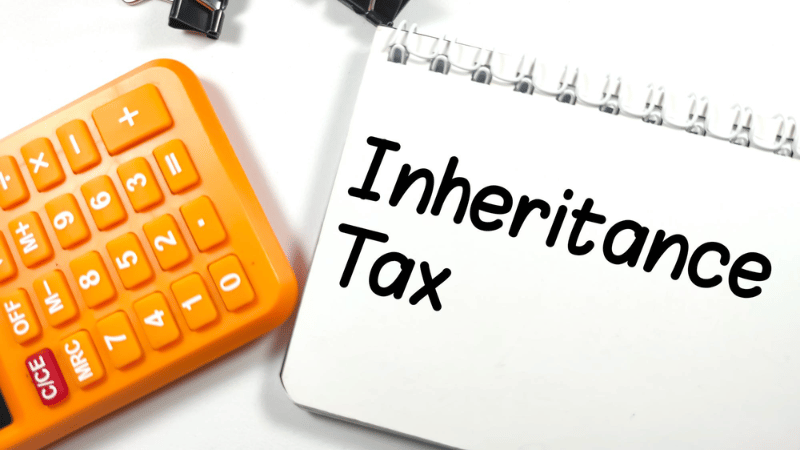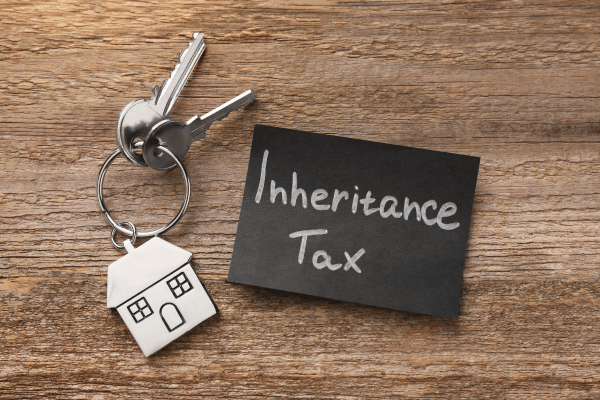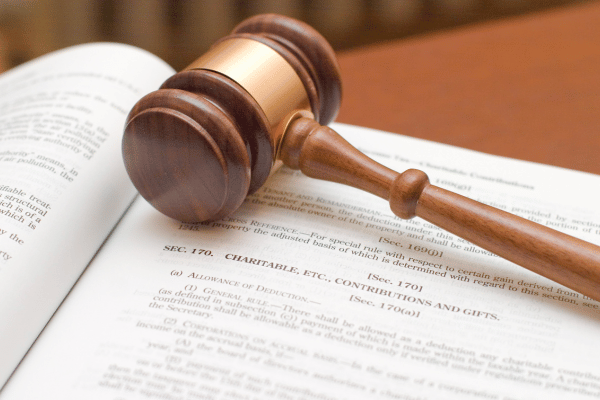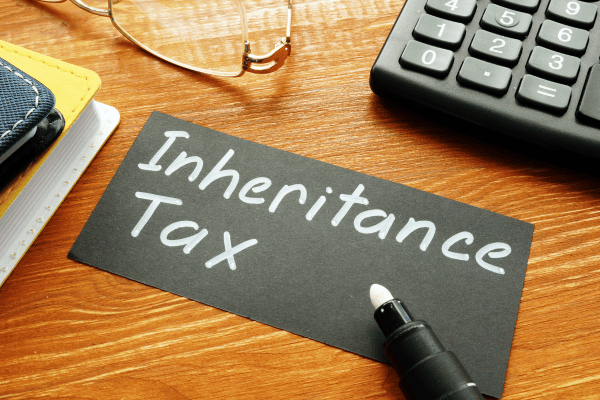How to Avoid Pennsylvania Inheritance Tax: Tips and Strategies

When inheriting properties and assets, heirs often ask, “How much is the Pennsylvania inheritance tax, and how can I minimize it?” Although you don’t need to worry about federal estate tax unless the estate is worth over $13.61 million, Pennsylvania inheritance tax may still apply.
In this article, we’ll discuss effective legal strategies to avoid Pennsylvania inheritance tax.
What is the Pennsylvania Inheritance Tax?

All real and tangible personal property of a resident of the state of Pennsylvania, including automobiles, furniture, cash, antiques, and jewelry located in Pennsylvania, is subject to inheritance tax. This is commonly known as the Pennsylvania inheritance tax.
The tax rate for Pennsylvania inheritance tax depends on the recipient. Tax rates vary based on the relationship between the deceased and the heir. Pennsylvania differs from other states regarding federal estate tax because taxes are based on one’s beneficiary class.
Transfers to direct descendants incur a 4.5% tax, while transfers to siblings incur a 12% tax. Transfers to other heirs have a 15% tax.
Property owned jointly by husband and wife is exempt from paying inheritance tax, which means a surviving spouse doesn’t have to pay taxes once the title gets transferred to them. This 0% tax also extends to surviving parents if they inherit it from a child under 21.
What Assets Are Exempt from Pennsylvania Inheritance Tax?
Some assets aren’t subject to Pennsylvania inheritance tax. These include the following:
- Jointly owned property between spouses
- Life insurance proceeds paid to a named beneficiary
- Certain agricultural properties and family farms
- Transfers to charitable organizations
10 Strategies to Avoid Pennsylvania Inheritance Tax
When you’re in the process of Pennsylvania estate planning, you might want to consider strategies to minimize Pennsylvania inheritance tax. If you plan strategically, your heirs can maximize the inheritance they receive.
1. Lifetime Gifting
You can take advantage of the gift tax to lessen the taxes you’ll have to pay. As of 2024, the annual gift tax exclusion is $18,000, while the lifetime limit is $13.5 million. You must only deduct from the lifetime limit if you exceed the yearly limit. You must properly document the transaction to qualify for gift tax exclusion.
What makes lifetime giving so attractive is that it reduces the size of the estate subject to inheritance tax.
Moreover, it allows beneficiaries to receive assets while the giver is still alive. However, the donor might be liable to pay capital gains tax if they choose this strategy. There could also be an impact on Medicaid eligibility if gifts are made within five years of applying for benefits.
2. Transfer Assets to Spouse
You can explore transferring your assets to your spouse to avoid paying Pennsylvania inheritance tax. Property owned jointly by husband and wife is exempt from paying inheritance tax, which can save the couple a lot of money.
On the other hand, this might be a complicated matter if blended families are involved. This transfer may cause friction within the family and incur more taxes paid in the long run.
3. Establish Irrevocable Trusts
Irrevocable trusts grant donors the ability to pass assets to beneficiaries, and they’re almost impossible to alter. Changes can only be made with the beneficiaries’ official consent. Irrevocable trusts can have some tax advantages, including reducing the size of the estate, beneficial income tax treatment, and gift tax exclusion.
One good example is Grantor Retained Annuity Trusts (GRATs), which allow you to transfer massive wealth to the next generation with little to no tax implications. Meanwhile, Charitable Remainder Trusts (CRTs) can generate potential income and defer potential income tax.
4. Life Insurance Strategies
Irrevocable Life Insurance Trusts (ILITs) are trust setups that permit you to own one or more life insurance policies. Because they remove taxable assets from your current portfolio, an ILIT can lower your tax burden. They’re also subject to asset protection and government benefit protection.
ILITs are irrevocable, which means they’re set in stone. Making policy changes can be challenging, so it’s not something you get into lightly.
5. Business Succession Planning
Family limited partnerships (FLPs) are legal entities families utilize to start a business venture together or as a potential estate planning vehicle. FLPs can be used to transfer shares to a family member in a tax-beneficial manner. It also allows people to use the annual tax exclusion amount for families.
The Qualified Family-Owned Business Interest (QFOBI) deduction allows individuals to reduce their estate tax by deducting a qualified family-owned business interest from their gross estate. These strategies are advantageous to families but may cause friction with other owners or shareholders whose assets may be affected by these entities.
6. Charitable Giving

Giving to charity can be tax-beneficial in different ways. Charitable bequests refer to gifts you offer to philanthropic organizations. These gifts aren’t allowed to be taxed, lowering your overall taxable estate. Meanwhile, Charitable Remainder Trusts (CRTs) can generate additional income and defer potential income tax.
You can explore donating to donor-advised funds. These are accounts maintained by a sponsoring organization. They can help you lower your overall income tax, which is an effective way to avoid inheritance tax.
7. Change of Domicile
You can consider changing domicile to avoid paying PA inheritance tax. To prevent the tax implication, you can choose a state that doesn’t have an inheritance tax.
You can explore different ways to change your domicile, such as applying for a driver’s license in that state and buying vehicles from there. You can also register to vote or buy a property in that state.
While changing domicile might help you escape PA inheritance tax, you will still be required to pay other state-mandated taxes. That’s why you should carefully consider the advantages and disadvantages of moving states for tax purposes.
8. Utilize Tax Payment Discounts
Filing inheritance tax returns early can be beneficial if you aim to lower the amount you owe the state. You’re entitled to a 5% discount on taxes paid three months after the donor’s death. While this strategy won’t help you escape inheritance tax, it can save you a lot of money and maximize your heirs’ inheritance.
9. Joint Ownership
Opting for joint ownership can help you avoid paying inheritance tax. Assets owned jointly with rights of survivorship pass directly to the surviving owner. Some of the jointly owned assets you can explore are joint accounts and real property. If you choose this strategy, only the decedent’s asset share is taxed; the surviving owner’s share is not subject to inheritance tax.
10. Estate Planning
Enlisting the assistance of an estate planning attorney can help you maximize your assets while minimizing PA inheritance tax. Having wills, trusts, and beneficiary designations in place can spare your heirs from trouble and ensure everyone gets what you want them to receive. You should regularly update estate plans to reflect asset changes and family dynamics.
Exclusions from Pennsylvania Inheritance Tax

Some assets are excluded from PA inheritance tax. These include the following:
- Family heirlooms of nominal value
- Certain agricultural property
- Timber, coal, oil, and natural gas rights
Special Considerations for Family Farms and Businesses
Family farms are granted special tax treatment in Pennsylvania. If the decedent passed away after June 30, 2012, the family is exempt from paying PA inheritance tax. To qualify, the farm must have been dedicated to agriculture for at least seven years upon the decedent’s death and have a minimum gross yearly income of $2,000.
The family taking care of the farm must regularly contact the Department of Revenue to provide evidence that it is still qualified for the inheritance tax exemption. If any of these conditions are not met within seven years, the family must pay inheritance tax with interest.
Estate Planning for Non-Probate Assets
But what about non-probate assets or assets you don’t legally have to pass after one’s death? Non-probate assets include Retirement accounts (IRAs, 401(k)s), Transfer on Death (TOD) accounts, and Payable on Death (POD) designations.
Proper planning can ensure that the assets in these accounts are passed to heirs upon one’s passing. It’s vital to identify one’s beneficiaries to avoid any complications in the future.
Out-of-State Property and Beneficiary Considerations
Out-of-state properties aren’t subject to PA inheritance tax. However, not everyone knows this, which may prompt them to pay inheritance tax even though it’s unnecessary. This is why conferring with attorneys can help diffuse confusion.
Avoid Pennsylvania Inheritance Tax with Professional Help
With innovative strategies, you can lower or eliminate Pennsylvania inheritance tax and help heirs maximize their inheritance. Conferring with a licensed CPA can relieve headaches and provide proper guidance. Sign up today to learn more.
FAQs
How much can you inherit in PA without paying taxes?
As of 2024, the federal estate tax exemption is $13.61 million, and the taxes you’re required to pay in PA depend on your beneficiary class.
Does a trust avoid Pennsylvania inheritance tax?
A trust can lower one’s tax liability, but it doesn’t guarantee tax exemption. This would depend on various factors, such as asset values, beneficiary class, and charitable contributions.
Are there loopholes for inheritance tax?
Yes, there are several loopholes you can use to lower your tax rate, such as joint accounts, contributing to charity, establishing irrevocable trusts, and gifting while still alive.
What is the family exemption in PA inheritance?
If you’re a surviving spouse or parent inheriting from someone under 21, you don’t have to pay PA inheritance tax.
What is the discount on inheritance tax in PA?
You’ll be granted a 5% discount if you pay inheritance tax within three months of the decedent’s death.
What is the 3000 exclusion in PA inheritance tax?
Gifts and transfers made at least a year before a person’s death are exempted from inheritance tax if they meet the ceiling of $3,000 per person a year.
Is there an inheritance tax on joint bank accounts in PA?
No, you don’t have to pay inheritance tax for joint accounts in PA.